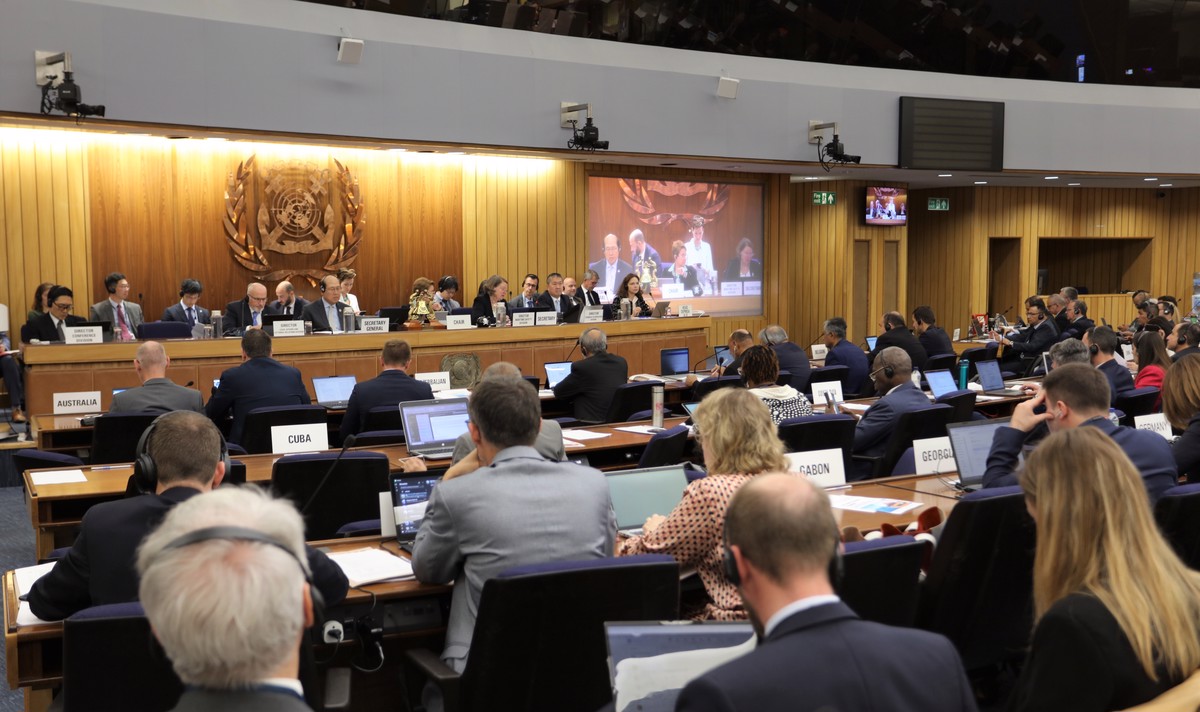Split opinion on interim IMO GHG targets could derail shipping decarbonisation – UMAS
The "leading proposal" during last week’s IMO working group meeting would fall short of aligning shipping with the Paris Agreement, Tristan Smith and Alison Shaw of University Maritime Advisory Services (UMAS) argue.  PHOTO: Intersessional Working Group on Reduction of GHG Emissions from Ships (ISWG-GHG 15) meeting held in London last week. IMO
PHOTO: Intersessional Working Group on Reduction of GHG Emissions from Ships (ISWG-GHG 15) meeting held in London last week. IMO
The leading proposal last week was for 20% greenhouse gas (GHG) reduction by 2030 and 70% GHG reduction by 2040.
Smith and Shaw work for UMAS, a research collaboration and advisory project run by the University College of London. They argue that last week’s IMO Intersessional Working Group on Reduction of GHG Emissions from Ships (ISWG-GHG 15) discussions headed in a direction that is not aligned with the Paris Agreement goal of limiting global warming to less than 1.5°C of pre-industrial levels.
UMAS says about 15 IMO member states vocally supported setting a target of 37% GHG emissions reduction by 2030 and 96% by 2040. Some of these member states were small island developing states. These member states also backed a 5% alternative fuel mix goal by 2030 and a net-zero emission target for 2050.
The IMO currently has a total of 175 member countries and three associate members.
Another 16 member states vocally supported a 29% GHG reduction target for 2030 and an 83% for 2040. But they had a “cautious approach” to net-zero wording in the draft. These member states were mostly developed countries, UMAS added. They supported a 10% alternative fuel mix goal by 2030 and to fully phase out shipping emissions by 2050.
One member state proposed that no interim GHG reduction target should be set for 2030, but backed 80% GHG reduction by 2040 and net-zero by 2050.
The working group has submitted a text to the the IMO’s 80th Marine Environment Protection Committee (MEPC), which is meeting this week. The text will be discussed and is expected to be finalised and adopted as a revised IMO GHG strategy by the end of the week.
In addition to adopting new GHG reduction targets this week, IMO member states will also determine when mid-term measures will be agreed upon and implemented. These mid-term measures can be economic or financial measures aimed at bridging price gaps between oil-based marine fuels and low- and zero-emission fuels.
The majority of IMO member states are in favour of adopting mid-term measures by 2025, UMAS said.
By Nithin Chandran
Please get in touch with comments or additional info to news@engine.online





